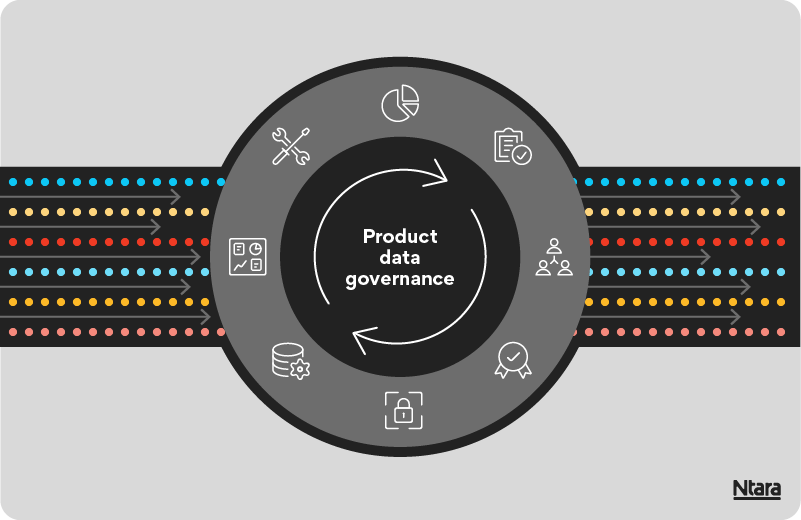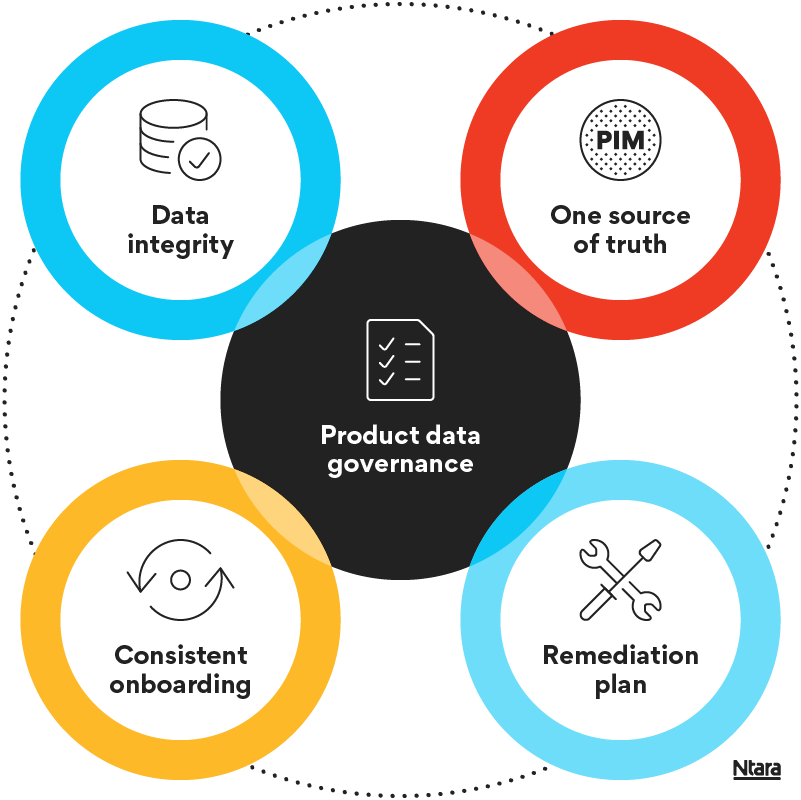
If your business hasn’t standardized data governance, you may have:
- Old, inaccurate data showing up in the wild
Inconsistency creates frustration and mistrust with customers - No one on point to “own” product data issue resolution
How can you fix your data problem if no one’s in charge? - Internal bias around systems owners and processes
Individual owners of systems (e.g., PIM or PLM software) creating bias within your data flows - Disharmony and discord whenever change happens
It takes longer than it should to get new systems online or to change data management processes, even at a field-level
Why you need product data governance
Your product data is the lynchpin of your ecommerce business, whether you have PIM software implemented or not. It’s well-known that if your product data is inaccurate, you risk loss of business or brand affinity. If it’s formatted incorrectly, you risk rejection from downstream channels.
It’s like how a printed book is “out of date” as soon as it is published and becomes more out of date with each passing year. Your product data practices will erode in relevance and efficiency if they aren’t updated on a regular basis.
You have many different systems (e.g., ERP, PLM, PIM, DAM, etc.) and many owners of each product data system. You need more than documentation to ensure your data practice evolves with your business.
It isn’t enough to establish the “right” way to capture data. You need systems in place to ensure compliance.


What is product data governance?
Think about your product information management practice as an airport, with thousands of fields of data (the passengers) traveling to and from various destinations. Product data governance is like your air traffic controller. It keeps your passengers safe and pilots informed. It’s the central point of communication when traffic changes for any reason. And like an air traffic controller, shared goals, visibility, and a common language are the keys to keeping everything running smoothly.
Ntara helps you define your standard operating procedures (SOPs) for product data governance. We help you determine who should serve on your governance committee. And we build change management strategies to help you plan for new products, acquisitions, and more.
How Ntara approaches product data governance
At Ntara, product data governance is typically part of a larger consulting engagement or implementation project. It can also be a standalone engagement.
We interview people across the organization to determine who plays which role in product data development. We need to understand the processes and systems they use. We want to identify what works with your processes—and what introduces bias or could be improved.
Our team then works with you to develop a governance model that addresses your specific business needs. We teach your governance committee how to manage your data practice. We provide detailed documentation. And our team will check in with the committee each month for a year. This provides significant value at all levels of the organization:
- Data integrity across downstream channels
Less confusion and stronger brand preference - One reliable source of truth for product data
Less time wasted; more time spent growing the business - Consistent onboarding process
Less duplication of work; more high value tasks - Proactive plan for remediation
Established decision makers resolve issues as they arise

What you get from product data governance
By the end of this engagement, you’ll have the documentation you need to govern your product data, including:

Principles & guidelines document
Documentation on how your business will govern existing data and create new data

Governance committee recommendations
Recommended list of data governance members, ensuring no data is left behind

Monthly check-ins for one year
After your initial engagement, we help guide the process and ensure you stay on track

Additional findings
Enterprise-wide insights regarding efficiency, security, and best practices
Get more PIM content in your inbox.
Join our email list to receive information from the digital consultant’s perspective.
Still evaluating PIM? We can help with that, too.
Before diving into PIM, your business may want to test the waters with a PIM readiness assessment.
Ready to discuss product data governance?
Schedule a meeting with a member of our team to begin the conversation.
